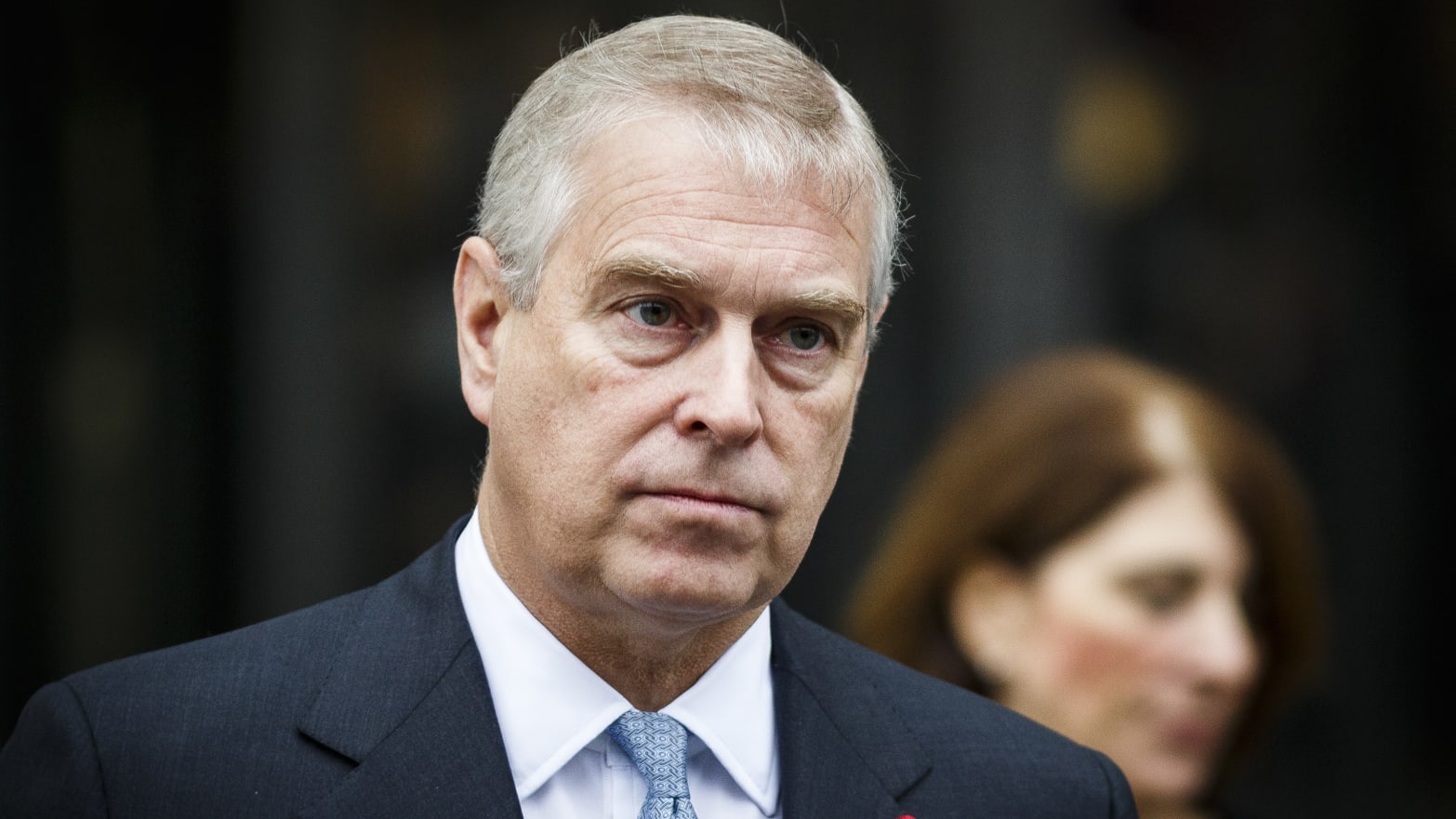Tristan Fewings/Getty Images
Prince Andrew’s lawyers on Tuesday struggled to persuade a New York judge that a civil suit brought against the royal by Jeffrey Epstein victim Virginia Giuffre—who is seeking unspecified damages claiming that Andrew raped her three times when she was 17—should be thrown out.
The judge appeared unimpressed with lawyer Andrew B. Brettler’s key argument that the prince was released from legal jeopardy by the terms of a $500,000 settlement Giuffre signed with Epstein in 2009, which was unsealed on Monday.
The judge suggested language in the contract meant its provisions could only be invoked by Epstein and Giuffre, not by a third party such as Prince Andrew.
The judge’s pursuit of this line of reasoning seemed to catch both sides by surprise.
It had been expected that debate would focus on whether or not Andrew was covered by the 2009 settlement, which said that Giuffre agreed to “forever discharge...any other person or entity who could have been included as a potential defendant” from future legal action.
Brettler argued that Andrew was “unambiguously” included in the category of “other potential defendants.”
Giuffre’s lawyer, David Boies, responded that the 2009 category was not relevant to Andrew because: “There is no allegation that Prince Andrew was the person transporting. There is no allegation that Prince Andrew fell into the category of people who were doing the trafficking. He was somebody to whom the girls were trafficked.”
However the judge, Lewis A. Kaplan, then actively pointed Boies towards a section of the 12-page agreement which specified that Epstein and Giuffre agreed “that the terms of this Settlement Agreement are not intended to be used by any other person,” asking him what he thought was the “significance” of the words.
The judge asked Boies: “What effect might that have on the defendants assertion that this release construed his way is usable by him in this case?”
Boies, who later apologized for his “slowness” in catching the judge’s drift, got distracted by a discussion about defining first and second parties, prompting the judge himself to spell it out, saying: “The defendant is ‘any other person’. [Prince Andrew] is within the category of persons who are not entitled to use the terms of the settlement.”
Boise said: “What the court is saying is that the parties explicitly, by the very terms of the settlement, preclude…”
The judge said, “Use by a third party.”
Boies said: “Exactly, which is Prince Andrew. Prince Andrew cannot do it. The only person that could assert this release in this case...”
The judge finished his sentence for him, “Would be Epstein.”
Brettler responded by saying it was not “a reasonable interpretation” of the paragraph and that “it wouldn’t make sense for them to include language releasing other potential defendants if those other potential defendants didn’t have a right to use that contract as an affirmative defense.”
The judge, however, said that this line of reasoning “ran smack into paragraph four which says this has all got to be secret. They are not going to give anybody a copy of this agreement and the terms can’t be disclosed.”
The judge said: “[I think] that paragraph two left enforcement of any rights in Other Potential Defendants, whoever they may be, in the hands of the contracting parties [Epstein and Giuffre]. To draw a line under that, paragraph four says the contracting parties aren’t going to tell anyone about the agreement.”
The judge concluded the hearing by saying he would give a decision “pretty soon,” but specifically noted there was no stay of discovery and that the scheduling order was in effect.
If he is able to sweat these days, it seems probable Andrew will now be doing so.

